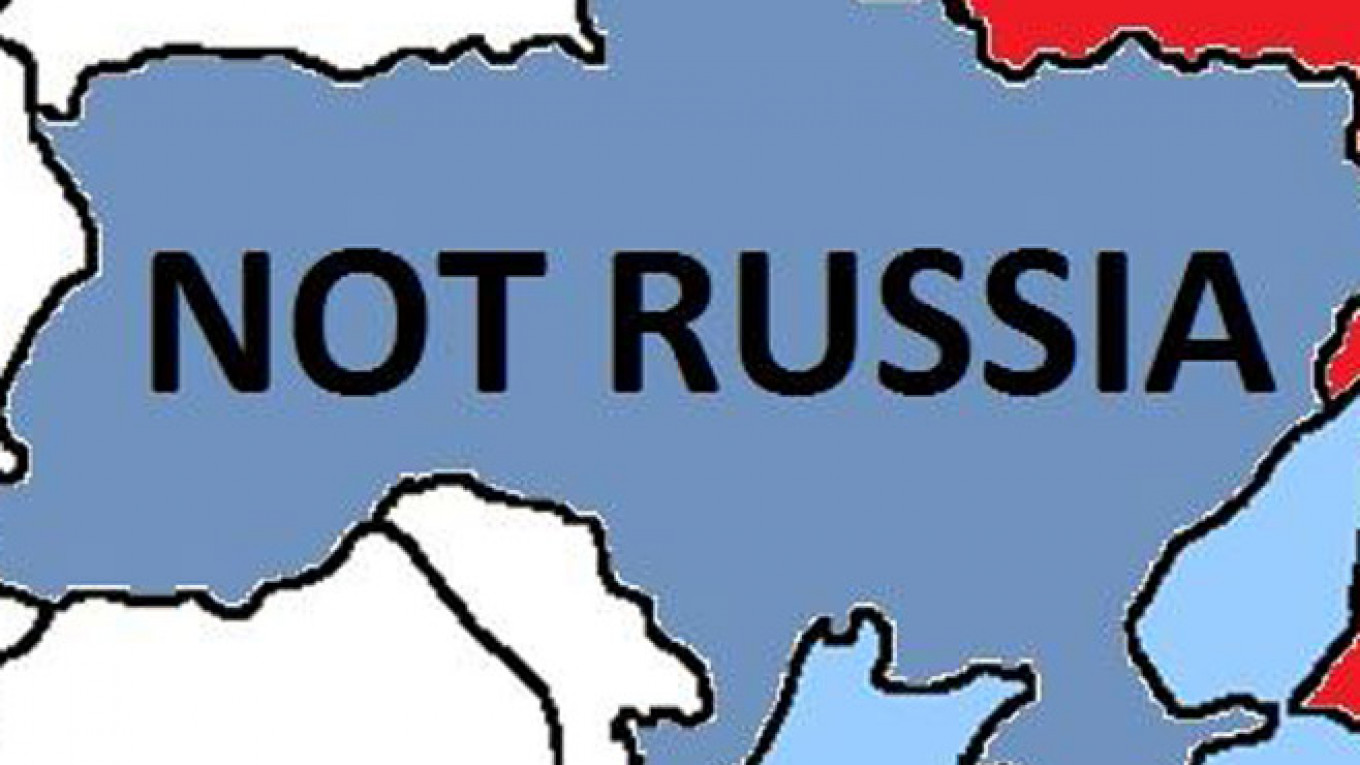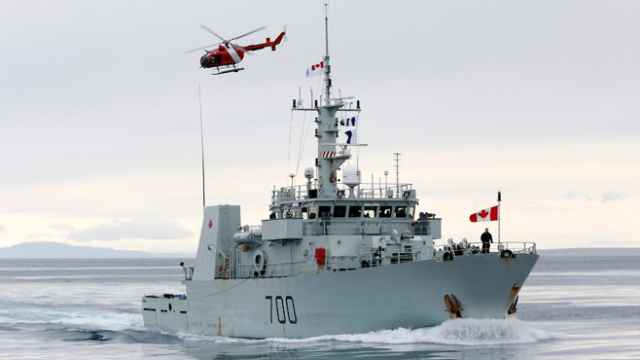Canada's mission to NATO has taken to heart Russia's claim that its 10 captured servicemen crossed into Ukraine by mistake, deciding to solve the problem with a geography lesson.
"Geography can be tough," the delegation tweeted on Wednesday. "Here's a guide for Russian soldiers who keep getting lost & 'accidentally' entering Ukraine."
Attached to the comment was a map with a red-marked Russia labeled "Russia," Ukraine, in blue, marked as "Not Russia," and surrounding countries in white and unmarked.
Geography can be tough. Here's a guide for Russian soldiers who keep getting lost & 'accidentally' entering #Ukraine pic.twitter.com/RF3H4IXGSp — Canada at NATO (@CanadaNATO) 27 августа 2014
Ironically, the Canadian mission's lesson went askew as the exclave Kaliningrad —West of Lithuania — is also painted in white, despite belonging to Russia since 1945.
Crimea and the town of Sevastopol are also colorless, though it is unclear whether the mission did so to make a political statement on the legitimacy of Russia's annexation of the Black Sea peninsula in March.
"What I've heard is that they were patrolling the border and could have ended up on Ukrainian territory," President Vladimir Putin told journalists on Wednesday when asked about the 10 captured Russian servicemen captured on Ukrainian soil by that country's security services.
Putin thereby confirmed the tone for the official Kremlin line as continuing to portray the incident as unintentional and deny active Russian involvement in the continuing clashes between separatists and government forces in Ukraine's East.
Earlier, an unidentified source at the Defense Ministry said the men had crossed the border unintentionally.
"The mentioned servicemen were patrolling the Russian-Ukrainian border, and crossed it, probably, accidentally, at an unmarked border point," the source told news agency RIA-Novosti on Tuesday.
A Message from The Moscow Times:
Dear readers,
We are facing unprecedented challenges. Russia's Prosecutor General's Office has designated The Moscow Times as an "undesirable" organization, criminalizing our work and putting our staff at risk of prosecution. This follows our earlier unjust labeling as a "foreign agent."
These actions are direct attempts to silence independent journalism in Russia. The authorities claim our work "discredits the decisions of the Russian leadership." We see things differently: we strive to provide accurate, unbiased reporting on Russia.
We, the journalists of The Moscow Times, refuse to be silenced. But to continue our work, we need your help.
Your support, no matter how small, makes a world of difference. If you can, please support us monthly starting from just $2. It's quick to set up, and every contribution makes a significant impact.
By supporting The Moscow Times, you're defending open, independent journalism in the face of repression. Thank you for standing with us.
Remind me later.






